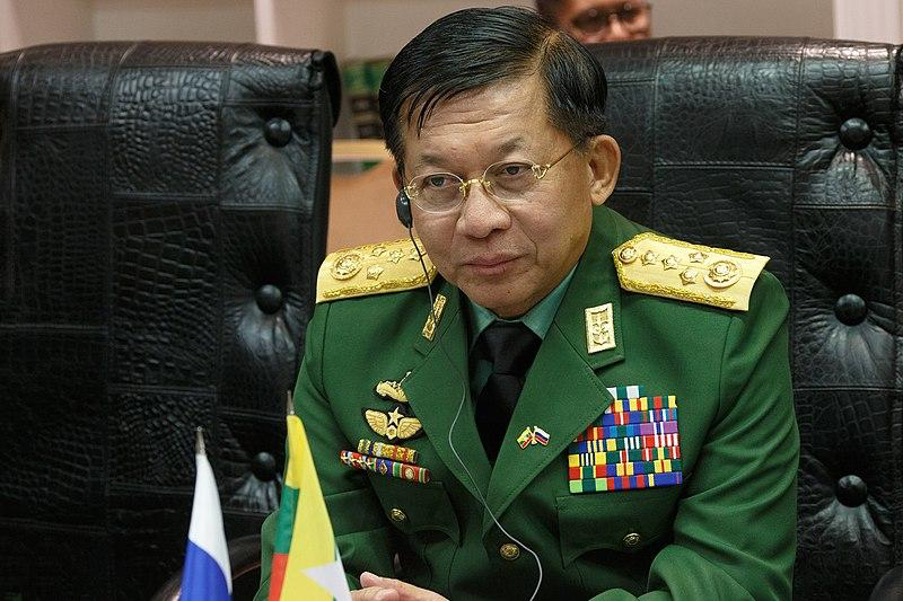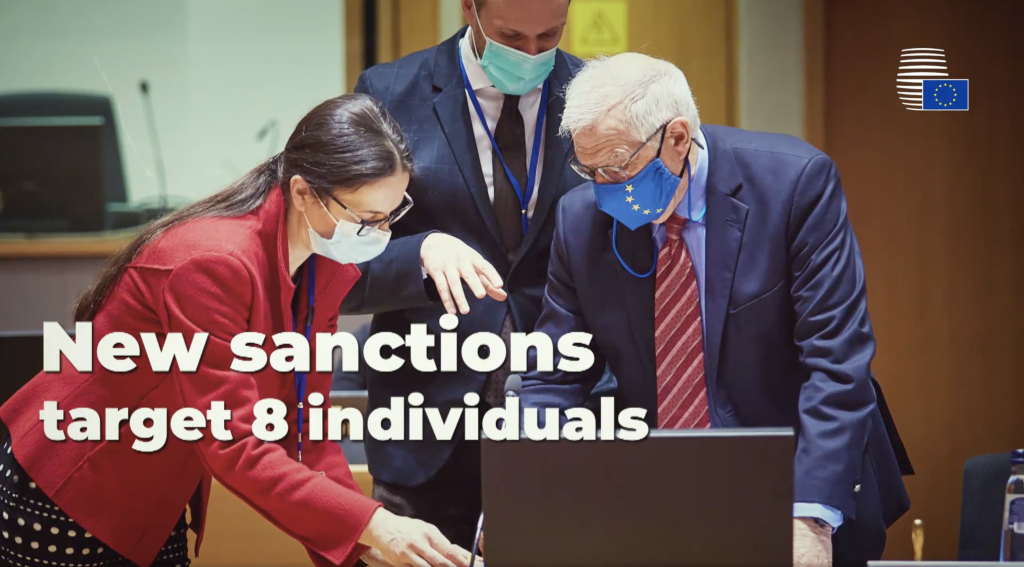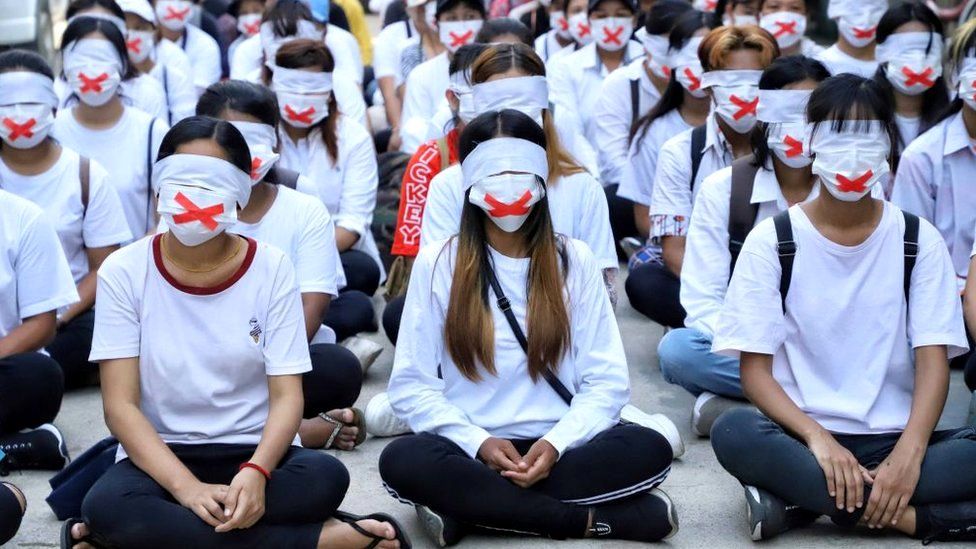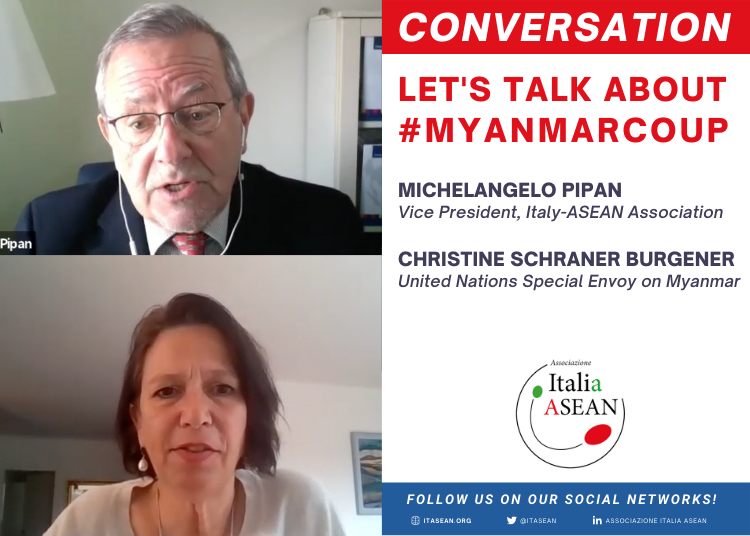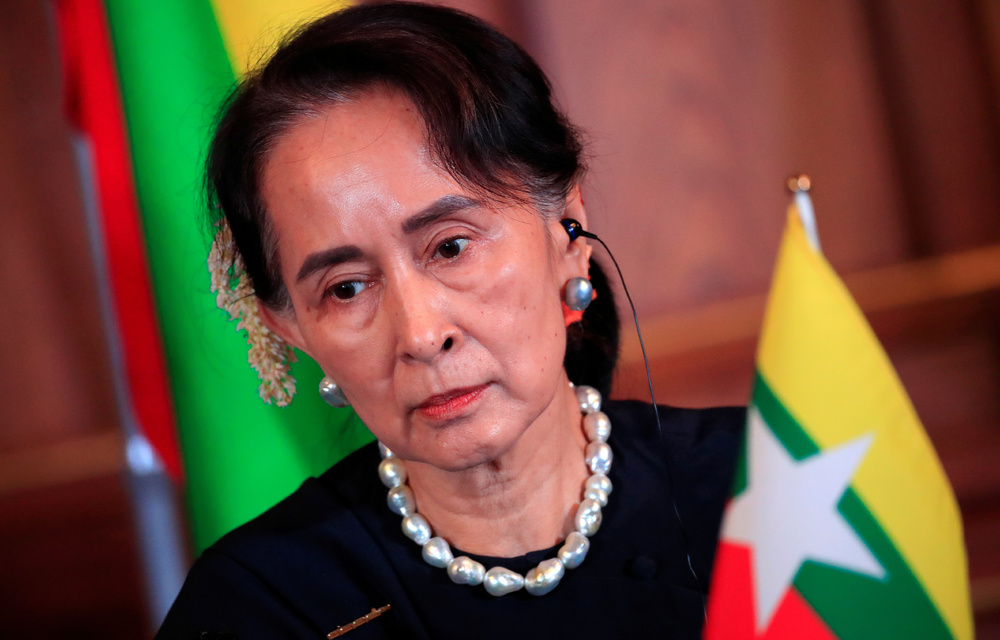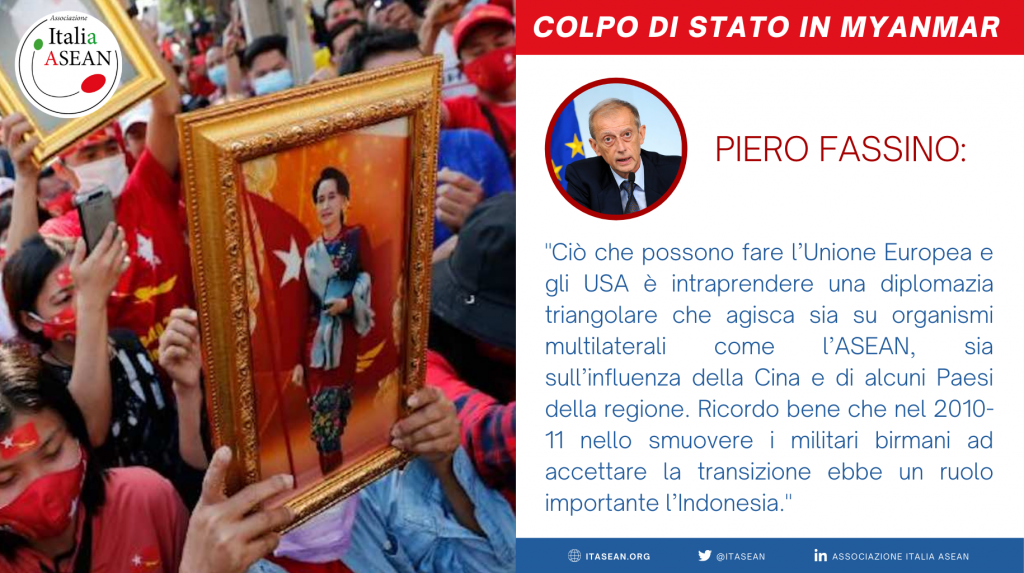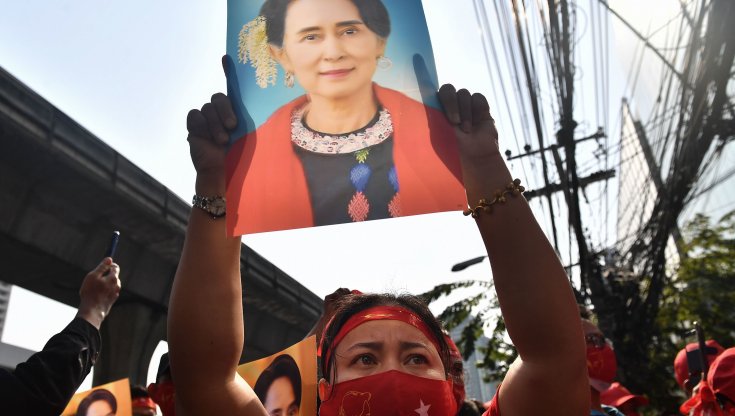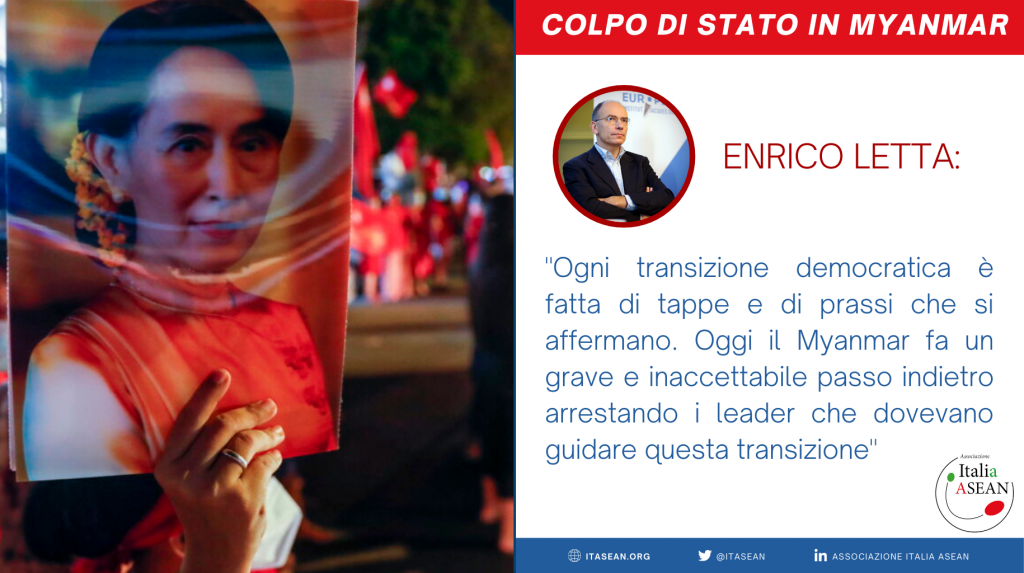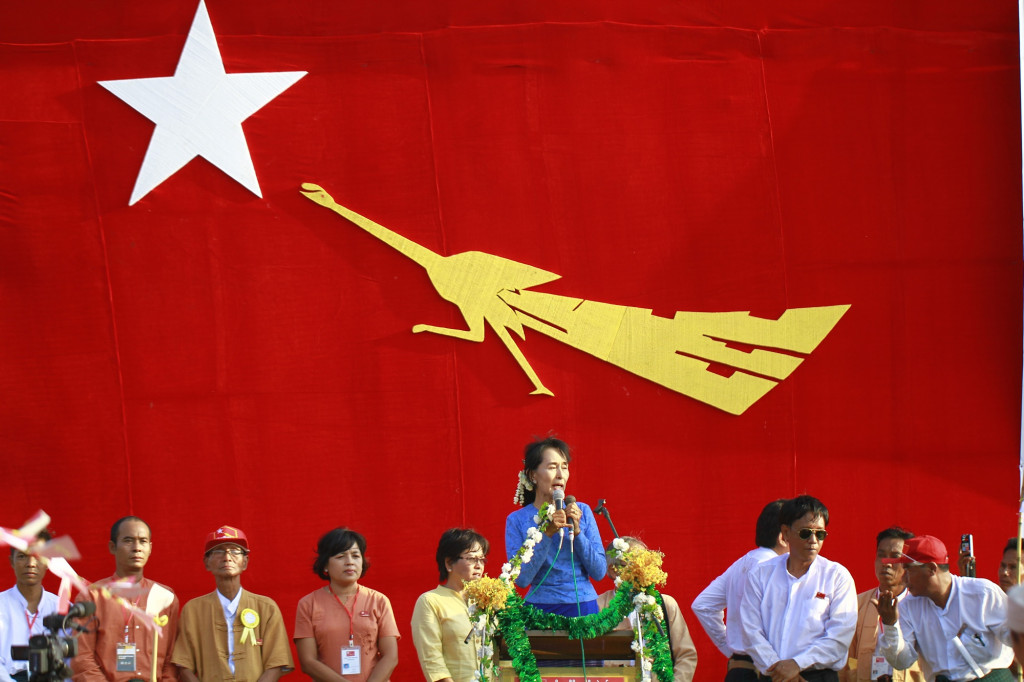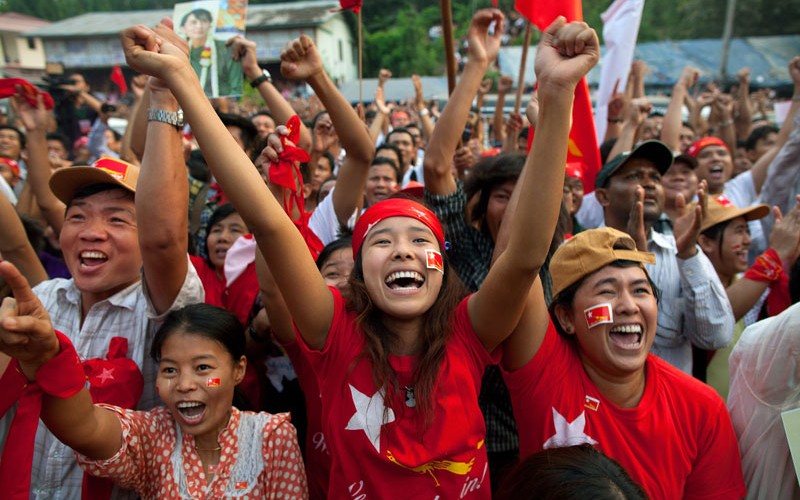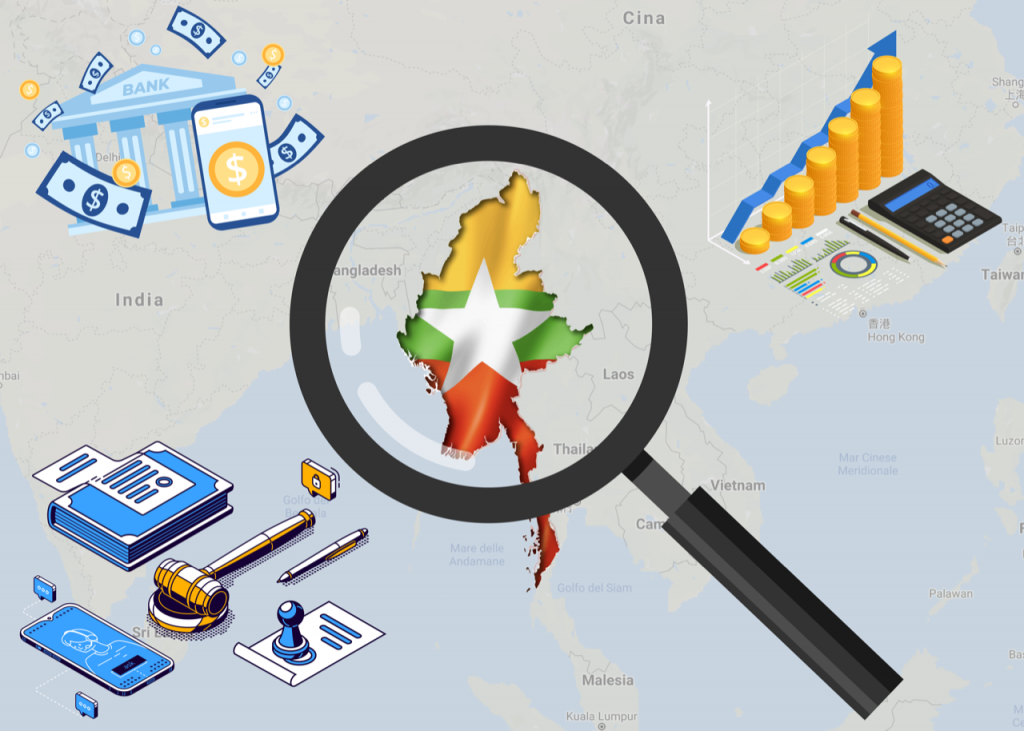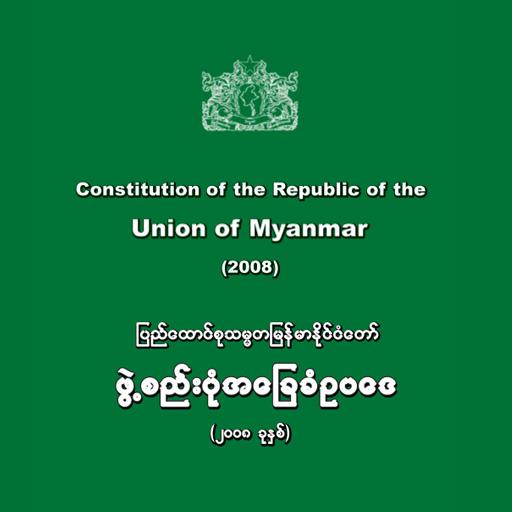Piero Fassino, già inviato UE in Myanmar nel 2007 e Presidente della Commissione Esteri della Camera dei Deputati, ci spiega il perché del golpe e delinea alcune tendenze del Paese per capire la situazione locale e quali i possibili sviluppi
Che ruolo giocano i militari nel Paese? Ci si poteva aspettare un loro ritorno al potere? Davvero si pensava avrebbero lasciato il potere definitivamente ai civili? Davvero i militari lasceranno il potere fra un anno?
Per rispondere a queste domande bisogna andare alle radici dell’indipendenza birmana e della guerra di liberazione contro l’occupazione giapponese nella Seconda Guerra Mondiale guidata con successo proprio dal generale Aung San, il padre di Aung San Suu Kyi. Intorno ad Aung San si formò un gruppo dirigente costituito da ufficiali, alcuni dei quali ordirono il complotto che portò all’uccisione dello stesso Aung San alla vigilia dell’indipendenza.
Da allora l’esercito è parte integrante della storia e dell’identità nazionale. Non bisogna dimenticare poi che, sebbene la stragrande maggioranza della popolazione sia di fede buddista, la Birmania è uno stato non solo multireligioso, ma anche multietnico e plurilinguistico, con assetto federale, con spinte autonomistiche – e anche secessionistiche – che hanno consentito alle forze armate di presentarsi come i garanti dell’unità nazionale.
Altro punto di analisi da non trascurare è che la transizione alla democrazia non è avvenuta per una sconfitta della giunta militare, ma con un processo octroye’ dalle autorità militari che hanno accettato la formazione di un governo civile e l’avvio di una transizione democratica in cambio di una riserva del 25% dei seggi parlamentari e del mantenimento di tre ministeri chiave: difesa, interni e appunto coesione nazionale. Processo che sia la comunità internazionale, sia Aung San Suu Kyi hanno accettato scommettendo sul fatto che la gradualità della transizione avrebbe via via ridotto il peso dei militari e favorito una completa e compiuta democratizzazione del Paese. I fatti di queste settimane hanno spezzato quel disegno. Ed è difficile credere che al termine dello stato d’emergenza, ovvero tra un anno, si ritorni ad una dinamica democratica.
Aung San Suu Kyi governa dal 2015 e ha dovuto affrontare il problema dei Rohingya. Su quest’ultimo tema è stata molto criticata dalla comunità internazionale e ha perso credibilità (anche alla luce del suo essere stata un campione dei diritti per il quale aveva vinto il Nobel). Può aver messo da parte i principi per agire in modo realista? Ovvero sacrificare qualcosa per mostrarsi in grado di governare il Paese e quindi essere un attore politico responsabile agli occhi dei militari? Alla fine si può dire che la sua azione non abbia pagato e ne sia uscita screditata?
Aung San Suu Kyi, liberata a fine 2010, è entrata in Parlamento con le elezioni suppletive del 2012 in cui si rinnovarono 42 seggi, la gran parte conquistati dall’NLD. Successo replicato alle elezioni del 2015 che diedero alla Lega Nazionale per la Democrazia una larga maggioranza assoluta che le consenti di formare il primo governo democratico e avviare una transizione che ha liberato tutti i detenuti per ragioni politiche, abolire ogni forma di censura, aprire il Paese a investimenti stranieri, modernizzare il Paese e concludere accordi di pacificazione e autonomia con le minoranze etniche. La repressione dei Rohingya è stata una iniziativa dei generali che, sfruttando la generale ostilità della popolazione birmana verso i Rohiynga, ha fatto fare ad Aung San Suu Kyi la parte del carnefice quando invece l’azione dei militari è stata da lei totalmente subita. Come abbiamo visto, secondo la Costituzione birmana i ministeri della difesa e degli interni, non rispondono al Parlamento ma alle gerarchie militari. Contrastare apertamente i generali voleva dire opporsi a un sentimento diffuso di ostilità verso i Rohingya presente nell’opinione pubblica nazionale; non contrastare i generali ha voluto dire opporsi a un sentimento diffuso nell’opinione pubblica internazionale giustamente sensibile alla tutela delle minoranze e dei diritti umani. La prudenza manifestata da Aung San Suu Kyi in quel frangente non è frutto di cinismo o insensibilità, ma della consapevolezza di stare dentro a un processo difficile e incompiuto che come tale conosce dei rallentamenti, ma del quale non si può abbandonare la guida. Questa complessità è stata del tutto sottovalutata in Occidente che ha assunto posizioni che hanno avuto l’unico effetto di indebolire Aung San Suu Kyi.
E quindi la severità dell’Occidente è stata controproducente?
Sì. La scelta del Parlamento Europeo di ritirare il Premio Sacharov all’esponente politica birmana è stata una decisione moralistica e profondamente impolitica, assunta senza valutarne le conseguenze. Max Weber ci aveva ammonito da questo rischio. La politica non può essere guidata soltanto dall’etica della testimonianza, che valuta solo la mera coerenza dei principi. In politica vale l’etica della responsabilità che non si ferma alla coincidenza tra scelte e valori, ma si interroga sulle conseguenze di quelle scelte. Ora non vi è dubbio che aver voluto “punire” la prudenza di Aung San Suu Kyi è stata letta dai generali come una forma di isolamento internazionale della Lady, contro la quale dunque si poteva agire. E se il colpo di stato ha una connessione con la vicenda Rohingya, non è per la “prudenza” di Aung San Suu Kyi, ma per il fatto che il generale a capo del golpe sia sotto inchiesta da parte del tribunale penale internazionale per i diritti umani proprio perché ritenuto responsabile della repressione dei Rohingya.
Dalla sua esperienza di inviato in Myanmar cosa ha capito della politica e società locale? Ritiene che il Paese sia pronto per una democratizzazione? Ci sono le basi e se si quanto sono solide per una democrazia?
I militari hanno tenuto per 60 anni la popolazione in uno stato di oppressione politica e di arretratezza economica e culturale. Ad esempio il sentimento ostile nei confronti dei Rohingya, su cui come abbiamo visto hanno speculato i generali, è un segno di arretratezza. Ma non ci si può fermare solo al dato negativo. Le conquiste democratiche e civili avvengono per tappe e dentro un processo. La mia esperienza mi dice che il Paese è pronto all’apertura al mondo e alla democratizzazione. E ha dato ampiamente prova di questa maturazione democratica alle ultime elezioni, quelle dell’8 novembre quando il percorso intrapreso dalla Lega Democratica di Aung San Suu Kyi è stato fortemente confermato da una grande maggioranza della popolazione e le manifestazioni di piazza di questi giorni che sfidano il regime militare dicono bene di questa maturazione e di questa consapevolezza acquisita.
Che influenza può avere l’ASEAN? Sappiamo che uno dei principi dell’ASEAN è proprio quello di non interferenza negli affari degli Stati membri, ma è una politica che potrebbe cambiare? Potrebbe l’ASEAN “suggerire” un ritorno al processo democratico? In fondo il Paese era stato criticato per l’affare Rohingya e molti Stati (Indonesia in primis) si erano spesi per la democratizzazione in passato.
Il principio della non interferenza negli affari degli altri Stati in Asia è una regola applicata da tutti i governi. Nonostante ciò, agire sui Paesi asiatici è indispensabile, puntando sia sui vicini della Birmania, sia sull’ASEAN, l’istituzione multilaterale nel Sud-Est asiatico. E l’Associazione di amicizia Italia-ASEAN può avere un ruolo importante da svolgere. La Birmania si trova a un bivio. Essere attratta nell’orbita cinese con un ruolo di sparring partner sostanzialmente subalterno, oppure tuffarsi convintamente nel partenariato dell’Indo-Pacifico, dove sarebbe un soggetto alla pari con tutti gli altri. L’ASEAN è un esempio di multilateralismo economico che vuol dire pace e apertura. Certo abbiamo visto che cooperazione economica non porta immediatamente alla democrazia e allo stato di diritto. Ma i mercati aperti, se non sono una condizione sufficiente, sono comunque una condizione necessaria e propedeutica a qualsiasi sviluppo in senso dell’ampliamento delle libertà civili e politiche delle popolazioni di tutti i Paesi del mondo. Compresa ovviamente quella del Myanmar.
Che ruolo possono giocare l’UE, gli USA con il nuovo Presidente Biden e la comunità internazionale in generale per favorire la democrazia e fare pressione sui militari?
Dobbiamo considerare che l’80 % degli scambi del Myanmar avvengono con i Paesi vicini, in gran parte con la Cina e l’ASEAN. Mentre con l’Europa e gli USA l’interscambio rappresenta meno del 20%. Ergo una classica risposta occidentale come le sanzioni avrebbe un’incidenza limitata e peraltro in Asia nessun Paese adotta misure sanzionatorie. Anche qui ritorna la distinzione weberiana tra etica della testimonianza e etica delle responsabilità. La storia ci insegna che le conseguenze di comportamenti sanzionatori da parte della comunità internazionale hanno spesso come conseguenza il consolidamento dei regimi autoritari e repressivi e non il loro indebolimento. Per questo ciò che possono fare l’Unione Europea e gli USA è intraprendere una diplomazia triangolare che agisca sia su organismi multilaterali come l’ASEAN, sia sull’influenza della Cina e di alcuni Paesi della regione. Ricordo bene che nel 2010-11 nello smuovere i militari birmani ad accettare la transizione ebbe un ruolo importante l’Indonesia.
Where China meets India: quanto pesa la geopolitica nei destini del Myanmar?
Come si evince da questa sua citazione, che è il titolo di una importante pubblicazione del politologo Thant Myint-U uscita proprio 10 anni fa, la Birmania è l’unico Stato del Sud-Est asiatico che confina e per un lungo tratto, sia con la Cina che con l’India. Questo conferisce al Paese un’importanza geopolitica e geoeconomica fondamentale. Se pensiamo alle tensioni geopolitiche che attraversano il Mar Cinese Meridionale e che contrappongono la Cina ora a Taiwan, ora alle Filippine, ora all’Indonesia, è facile vedere come la Birmania abbia per la Cina un interesse strategico essendo la via più diretta per accedere all’Oceano Indiano, senza dover passare attraverso il Mar Cinese Meridionale e soprattutto lo stretto di Malacca. Non solo, ma la Cina è il principale partner commerciale della Birmania e ha programmato grandi investimenti infrastrutturali nel Paese. E la Birmania è inserita nei percorsi della nuova Via della Seta. Del resto non è certo passata inosservata la visita del Ministro degli Esteri cinese Wang Yi in Birmania pochi giorni prima del golpe, segno di un’attenzione speciale che Pechino ha dimostrato e continua a dimostrare per i destini del Myanmar. È proprio perché la Cina ha interesse a una Birmania stabile, bisogna convincere Pechino che una Birmania sotto il tallone dei generali rischia di essere assai meno stabile di una Birmania democratica. Così come in questi anni di apertura è cresciuta la presenza dell’India. Non va mai dimenticato che la Birmania è ricca di risorse naturali: è seduta su una gigantesca nuvola di gas; gode di consistenti risorse idriche che gli consentirebbero un’agricoltura fiorente; è leader nelle gemme preziose; beneficia del miglior tek per le costruzioni navali; è ricco di molte materie prime. È importante che anche l’Occidente mostri un’attenzione all’altezza della situazione e usi la leva degli investimenti per impedire una involuzione autoritaria della Birmania.
Intervista a cura di Niccolò Camponi

